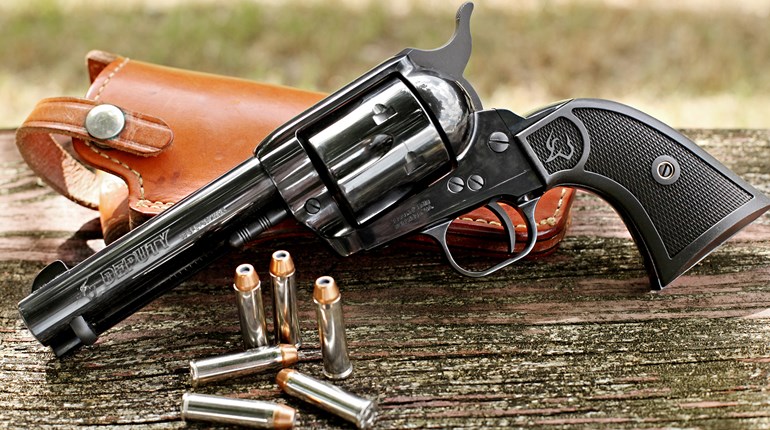
My friend Mike will be appalled to learn that he is the inspiration for this article.
Mike is a Vietnam vet, comfortably retired and genially anti-gun. He holds forth with an authoritative voice at our neighborhood coffee shop on all subjects. He and I disagree on gun rights in two respects—loudly and constantly.
Mike motorcycles cross-country, venturing thousands of miles across the West, into Mexico and on to Central America. Recently, he made a startling admission:
“You know, I’m not as young as I used to be; can’t hear very well, can’t see and my knees are shot. I camp by the side of the road in the middle of nowhere, and if someone wanted a piece of me, there’s not much I could do about it.” Mike’s case suggests a larger question: What other, less obvious changes in our circumstances affect our vulnerability?
A smile crept across his face as he said, “I got to thinking: Maybe I should get a gun.”
Mike’s circumstances have changed, and his attitude is changing with them. Age has made him more vulnerable, and he is willing to consider changes to mitigate the risks.
Mike’s case suggests a larger question: What other, less obvious changes in our circumstances affect our vulnerability?
You may be in the prime of health, but what if you get your knee scoped? Other health changes such as heart disease, high blood pressure, diabetes, PTSD and even seasonal allergies limit our abilities, not to mention the effects of the medications we take to treat them.
However, health factors aren’t the most common vectors that affect vulnerability. Changes that affect risk levels are unavoidable in the course of our daily lives:- Your car breaks down. Are you more, or less, vulnerable while changing a tire in the dark?
- You pull off the highway for gas in a sketchy neighborhood. Are you more vulnerable for the next 10 minutes?
- Unbeknownst to you, the waitress at your favorite diner filed for a restraining order against her abusive boyfriend, who didn’t take it well and knows where she works. Booth or table?
While events ratchet risk levels up or down, those changes are dwarfed by those wrought by the daily choices we make. For example:
- You took the night shift at work for a bump in pay. Are you more vulnerable in the parking garage in the dead of night?
- In the process of divorce, you move into an apartment. How many of your neighbors do you know?
- You’re going to Mardi Gras. Are you at greater risk in the French Quarter? After 2 a.m.? Have you been drinking, sir?
- You’re a woman carrying groceries to your car. In both hands. At night. Returning from the gym. In Spandex. You’re on the phone. Hello? Hello?
What if we could measure these changes and assign values to them? After all, insurance companies employ actuaries to calculate risk. The U.S. Army even has a worksheet for it, Form DD2977, that includes a severity/probability matrix.
Unfortunately, the skills required to develop such tools are beyond our scope. However, what if we just wanted to start you thinking about how circumstances and choices affect your personal security? That’s definitely within our wheelhouse.
Let’s call such a tool the Vulnerability Index (VX). It would start us off with a base value of, say, 100 points, and would add/subtract points to indicate how more or less vulnerable we are. To wit:
Add 1 point for every year of age over 55. Add 5 points each for heart disease and diabetes, and 10 points each for nagging chemical dependencies such as nicotine, alcohol and drugs. Subtract 5 points if you exercise weekly, 10 points if you exercise daily, and 25 points if you finished a triathlon in the last 6 months. Good for you.
Subtract 25 points if you live in a gated community; add 25 if you live in a trailer park. Add 50 points if you live in Chicago public housing. Subtract 5 points if you own a dog, and 5 more if it’s a Doberman (add or subtract points as necessary for attitude). Add points back if it’s an incontinent (+1) Chihuahua (+1) that has to go out in the middle of the night (+10); such a dog constitutes more risk than benefit.
See how this works? Let’s say we’ve calculated a base assessment of 125 points in your VX. Now we can move on to the more interesting work of scoring your behavior:
- You’re on a business trip to Chicago (+10). The airlines have stripped you of anything that could be used as a weapon (+10). You’re driving a rental car (+5) on unknown freeways (+5) at night (+5). It’s 5 below (-10). Siri is navigating (+50). Your Vulnerability Index has increased by 75 points, for a score of 200.
Let’s take a real-world scenario:
- You’re Harvey Lembo. You’re 67 years old (+12). You’re disabled (+25) and confined to a wheelchair (+25 more). You live alone (+25) in an apartment (+10) in a bad part of Rockland, Maine, (+30) where drug addicts have broken into your apartment six times (+40) to steal your prescription pain meds (+50).
- You bought a gun to defend yourself (-100). That night, you awoke to the sound of an intruder rummaging through your pills and, when he lunges at you, you shot him (-100).
- Your story makes the news, and the bad guys know you are armed and mean business (-100).
- Then, you’re notified by your property manager, Stanford Management, that your complex has a no-guns policy, and that you’ll have to give up your gun or vacate. The bad guys now know that you’re defenseless, you have drugs and you shot their buddy (+1,000).
Don’t agree with our scoring method? That’s fine, make your case. See, we already have you arguing; isn’t the Internet great?
The point of VX isn’t whether or not it’s accurate; rather, it should serve to get you thinking about your personal safety. Or arguing about it. Perhaps even doing something about it.
Wouldn’t that make VX a far more valuable tool than just some bathroom scale that weighs risk?


































